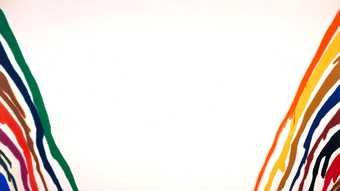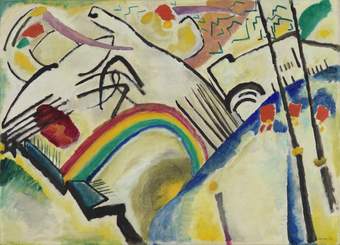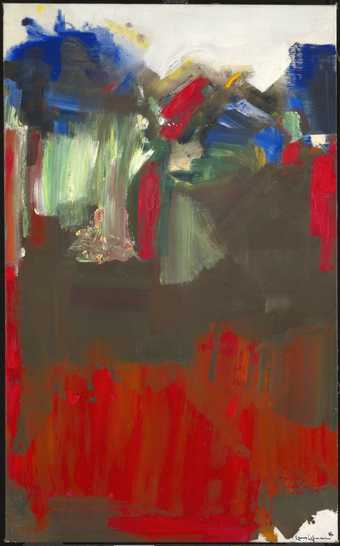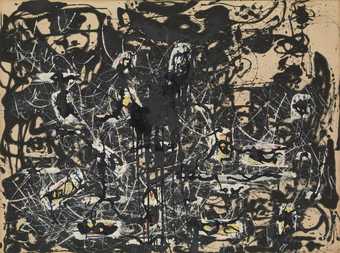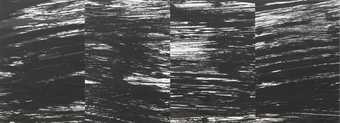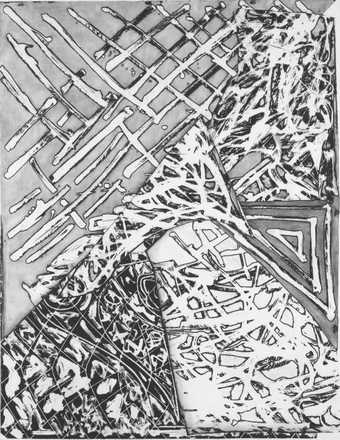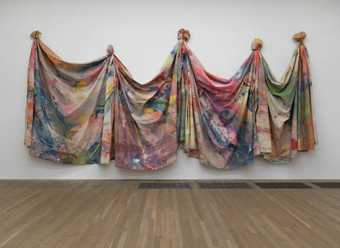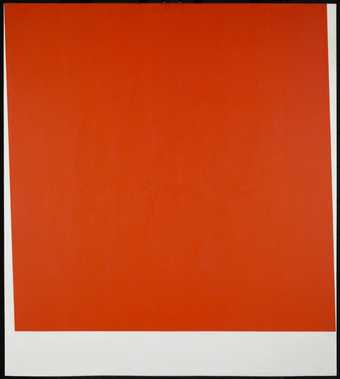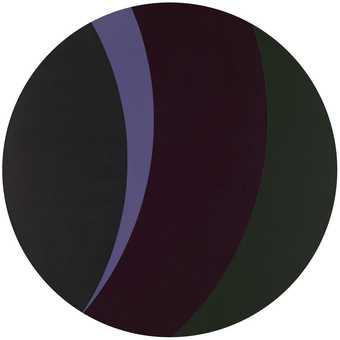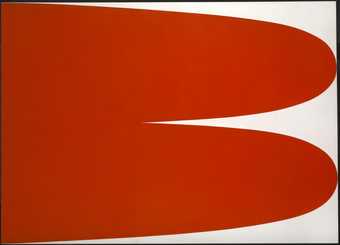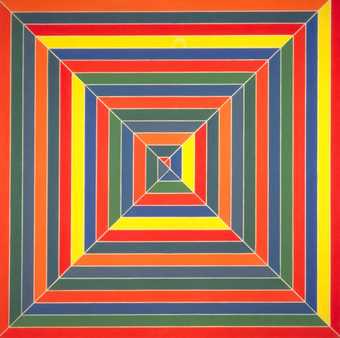
Frank Stella
Hyena Stomp (1962)
Tate
The term ‘hard-edge painting’ was coined by Californian critic Jules Langsner in 1959. He used it to describe the work of those abstract painters, particularly on the West Coast of America, who reacted to the more painterly or gestural forms of abstract expressionism by adopting a consciously impersonal approach to paint application. Their paintings were made up of monochromatic fields of clean-edged colour which reinforced the flatness of the picture surface.
This style of hard-edged geometric abstraction refers back to the work of Piet Mondrian and Josef Albers. It can be seen as a subdivision of post-painterly abstraction, which in turn emerged from colour field painting.
Artists associated with hard edge painting include Ellsworth Kelly, Frank Stella, William T. Williams and Sam Gilliam.

